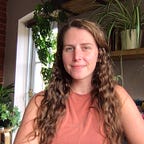Politics is “an essentially contestable concept” (Gallie, 1956) and as such has many definitions. Some could argue that politics is not objectively definable however to understand what politics signifies, it is important to engage with all the possible theories and definitions of politics. Although, these definitions are all distinct, they all must come with the acknowledgement of certain questions such as what politics is, where it is done and who can, should and does do it.
Most theorists take on either a narrow or broad definition of politics, either viewing it as something related to the state, or in a broader sense where the focus is removed from the state. There are many variances though on what this other focus could be. Crick, Arendt, and Heywood all believed this other focus is placed on conflict resolution, with both Crick and Arendt specifying the important distinction between political resolution and violence or coercion. However, these views carried normative assumptions about what is good and bad and the idea that resolution is always a positive thing. Agonists like Honig and Mouffe however, believe that conflict is an inevitable part of society and proof of freedom. Diversely, politics can place the focus on the exercise of power; however, this still relies on another contested concept, that of power. Dahl defined power as the “influence over the actions of others” (Andrews et al., 2015) but Lukes, disagreed, suggesting that this definition didn’t capture more covert forms of power such as new outlets controlling which news and political views it features. Although, Lasswell wrote that politics is about “who gets what, when and how” (Laswell, 1936), it is about the distribution of resources. These theories all suggest what politics is and how it can be performed, however, it is important to look at who and where politics is performed to gain a better understanding of their theories.
For a long time, politics was restricted to certain people are groups. For example, during the Ottoman empire, palaces were separated between the courts where men discussed politics and the harems where the women and children lived, entertaining the sultans. Women did not get suffrage entirely until 1928 thanks to the work of the suffragettes, however women in harems used their proximity to the sultan to influence him and created a political network through the women married to high-ranking officials. However, even after they gained suffrage some groups are still disenfranchised by the ways laws and policies restrict their access. Space can also be used as a way to restrict political access but also as a way to try and improve it. Groups such as Occupy and the protests in Egypt and Istanbul overtook public spaces not only to gain attention but also to emphasise how the 99% struggle to access and engage with spaces of power. Not all spaces are just political though because of protests, some have buildings built specifically for the process of politics and its significance such as the Welsh Assembly which was based on the design of the panopticon on the basis of power being exercised through it. Politics is a difficult thing to define but it can generally be summed up in how it affects the state and the way power and resources are distributed, as that is effectively what the state is in control of.
